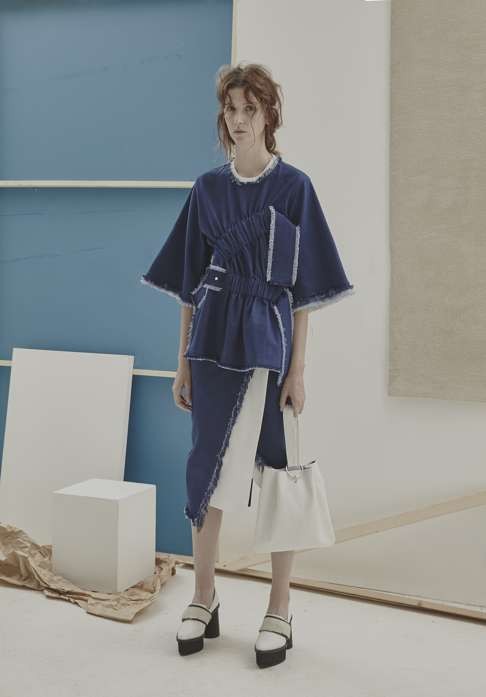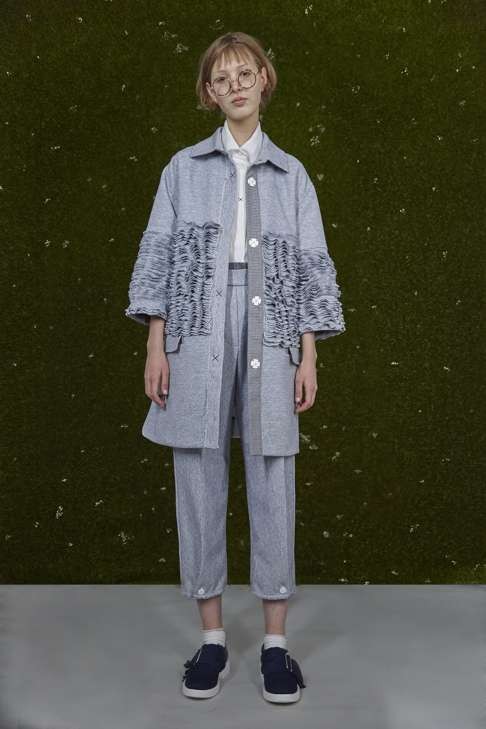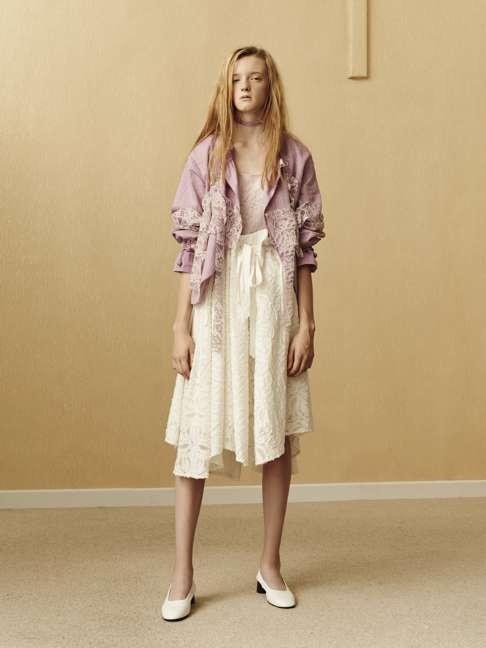
How might Brexit affect the fashion industry? Chinese designers weigh in
The Brexit vote has fashion designers, including some Chinese designers based in Britain, concerned about the future of the sector, which is worth HK$280 billion a year to the UK economy

Delicate layers of organic cotton and silk in Renli Su’s collection; raw denim, origami folding and colour blocking from Jamie Wei Huang; and a nerdy theme of millefeuille frills like the pages of a book on blouses, with shorts and apron dresses at Steven Tai. These were just a few of the many collections by London-based Hong Kong, Chinese and Taiwanese designers showing over the weekend at London Fashion Week.
It was the first international event on the British calendar after the vote in late June for the UK to leave the European Union, a referendum in which immigration and the economy were major issues. The fashion industry voted to remain in the EU because London is a major hub of international designers. Many Chinese studied in the UK like Renli Su, Ryan Lo and Xiao Li, all of whom stayed on to establish businesses, and the question now is where this vote will leave them. How confident are they of their future?

On the whole, they are positive: contributing to a £28 billion (HK$282.35 billion) UK industry, these fashion designers have established their brands, have employees, and export to Europe, China and America. However, Jamie Wei Huang admits her greatest fear is of the UK leaving the European Single Market, the tariff-free marketplace. Seventy per cent of UK fashion sales go to Europe, with the balance to China, America and the Middle East, so access to Europe is important for their businesses.

Some designers like Huishan Zhang and Xiao Li produce in China, so the fall in the value of sterling might raise costs a bit, and Steven Tai says sourcing his fabrics in Europe has become more expensive. Nevertheless the cheap pound has meant the UK has seen a bounce in sales in luxury and retail businesses since the vote, which is benefitting fashion.

Long-term, however, Xiao Li admits, “I am not sure yet what this [Brexit] is going to mean.”
The British Fashion Council has been swift to quell fears: “We have a point to prove to our [Fashion Week] guests that the vote to leave the EU doesn’t mean we’re going to end our international partnerships and collaborations,” said Caroline Rush, the chief executive of the Council. “We need to send a clear message that London is open to outsiders and the UK is a place of business opportunity.” Longer term, she wants to ensure London continues to attract talent.
Accessories designer Anya Hindmarch agrees: “It is an important point of discussion among designers: you can only grow business through great talent and I cannot think we are going to stop people coming to the UK who will help the UK grow.”